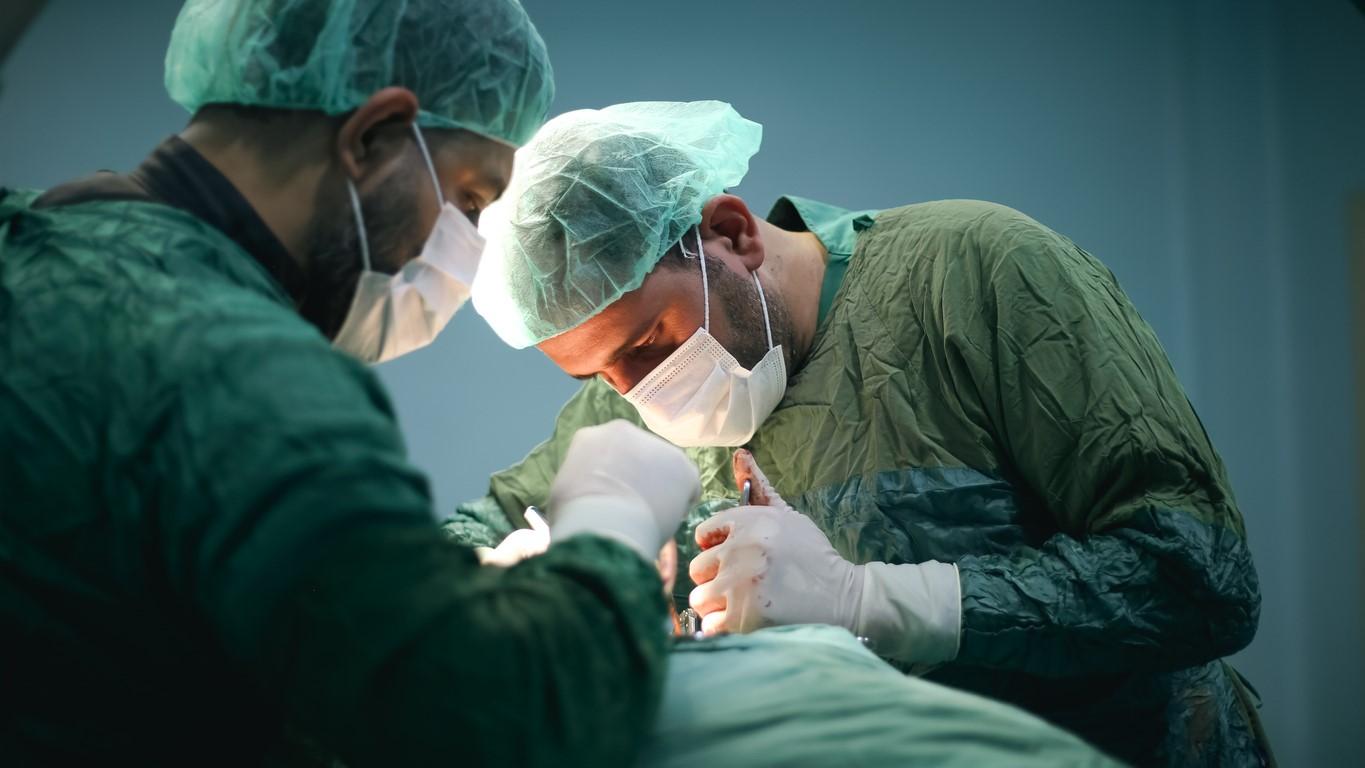
Appendicitis in children: what are the signs?
Peer reviewed by Dr Krishna Vakharia, MRCGPAuthored by Amberley DavisOriginally published 7 Mar 2023
Meets Patient’s editorial guidelines
- DownloadDownload
- Share
- Language
- Discussion
If you think your child has appendicitis, they need medical attention as soon as possible. Here we show you the warning signs of appendicitis in children.
In this article:
Continue reading below
What is an appendicitis?
Appendicitis in children is common - around 29,000 UK children visit hospitals with suspected appendicitis every year1. It's a medical emergency and knowing what signs to look out for is vital.
Appendicitis is when a small organ in the gut, called the appendix, becomes infected and swollen. The appendix is found in the lower right side of the tummy (abdomen) and this is where a lot of children with appendicitis experience pain.
If left untreated, a swollen appendix can eventually burst - known as a ruptured appendix - and spread bacteria and infection through the body. This is very serious, and requires emergency surgery to remove the appendix - a procedure called an appendectomy.
In most cases of appendicitis, spotting the signs early in your child can get them treated quickly, often without problems.
What age groups are more likely to get appendicitis?
In children and young people, appendicitis is most common between ages 10 to 192. It can also affect younger children, but it's very rare under the age of two. It's not clear to experts why some develop appendicitis and others don't, but a family history of the health problem seems to increase your child's risk.
Continue reading below
Signs of appendicitis in children
Appendicitis in children, and particularly very young children, tends to create different symptoms than in adults. These symptoms can also be similar to other health problems, making appendicitis tricky to recognise.
If your child is experiencing abdominal pain that's getting worse and more constant over several hours, you should contact your GP - or call 111 if in the UK - to get a diagnosis as soon as possible.
The symptoms of appendicitis to look out for:
Tummy pain - this pain starts around the belly button and is usually crampy at first. It then gets worse, more constant, and spreads to the lower right tummy.
Symptoms of a burst appendix - immediate medical attention needed:
A strong pain spreading to the lower right part of the tummy and then suddenly disappearing.
A temperature reaching 40°C (104°F).
Unable to lie flat - children are often curled in bed with their knees bent in.
Collapsing.
Symptoms in very young children and infants may be more vague:
Not wanting to eat.
General signs of feeling unwell - for example, fussing and crying more than usual.
Indicating a painful tummy.
Being sick.
Having runny poos.
If you suspect your child has appendicitis
Do: talk to a doctor as soon as possible. Your doctor may want to examine the child in their surgery, but if they feel it is appendicitis they might refer you directly to emergency care - through A&E in the UK - for urgent treatment and to avoid any delays.
Don't: offer your child anything to eat or drink.
Don't: give them medications, unless they are recommended by your doctor.
Continue reading below
How is appendicitis treated?
To confirm suspected appendicitis, your doctor may use:
Blood tests - to check for signs of infection.
Urine tests - to rule out other possible health problems, such as urinary tract infections (UTIs).
X-rays, ultrasounds, or CT scans (computerised tomography scans) - to see the signs of an appendicitis in the tummy.
If your child has appendicitis, they will need a type of surgery called an appendectomy. This is the only treatment for appendicitis, whether your child's appendix has burst or not.
The procedure involves making a small cut in the tummy and using a small device called a laparoscope to remove the infected appendix. Although this organ is thought to play a role in the immune system3, both children and adults can live perfectly healthy lives without it - around one in 100,000 people aren't born with one at all4. If the surgery is complicated, the surgeons may have to do an open surgery which involves a bigger cut - but this is less common.
Recovery time can be quick, and your child may be out of hospital a day after surgery. If their appendix had burst, your child could need to spend longer in hospital while doctors make sure that the antibiotics your child is given before and after surgery have prevented infection in the body.
Can appendicitis in children be prevented?
There's nothing you can do as a parent to prevent appendicitis in children. It all comes down to chance, and is usually caused by a random blockage in the appendix tube. This could happen when:
Food that's hard to digest becomes lodged.
Hard poo becomes stuck.
Glands in the gut (lymph nodes) become swollen.
Your child can't catch appendicitis from someone else.
Further reading
Patient picks for Abdominal pain

Digestive health
What happens if your appendix bursts?
Your appendix is a small organ that sits in the lower right part of your tummy. It can become infected, swollen, and even burst. This is very painful, but it is survivable - knowing the signs and acting fast is important.
by Amberley Davis

Digestive health
Appendicitis in children: what are the signs?
If you think your child has appendicitis, they need medical attention as soon as possible. Here we show you the warning signs of appendicitis in children.
by Amberley Davis
Continue reading below
Article history
The information on this page is peer reviewed by qualified clinicians.
7 Mar 2023 | Originally published
Authored by:
Amberley DavisPeer reviewed by
Dr Krishna Vakharia, MRCGP

Ask, share, connect.
Browse discussions, ask questions, and share experiences across hundreds of health topics.

Feeling unwell?
Assess your symptoms online for free
Sign up to the Patient newsletter
Your weekly dose of clear, trustworthy health advice - written to help you feel informed, confident and in control.
By subscribing you accept our Privacy Policy. You can unsubscribe at any time. We never sell your data.